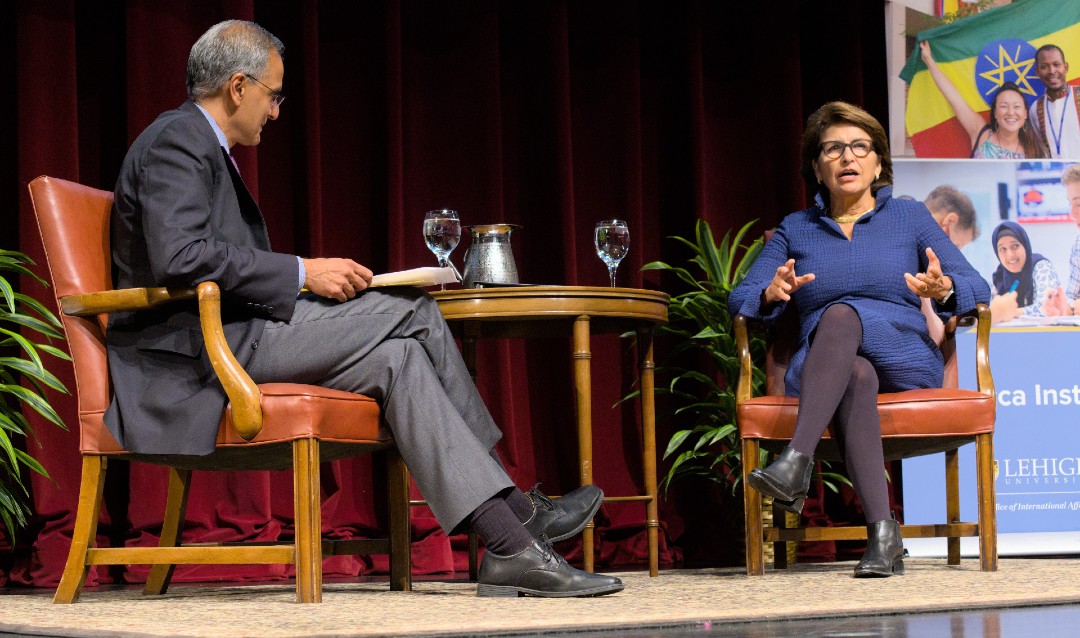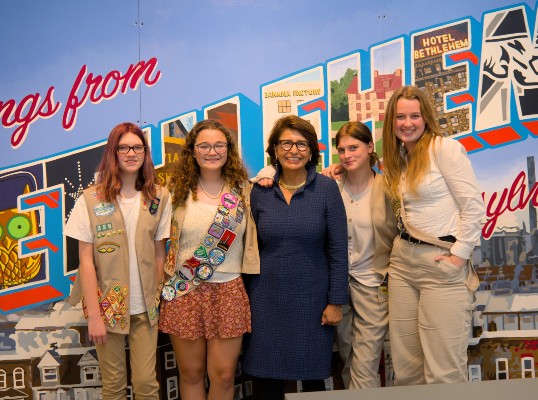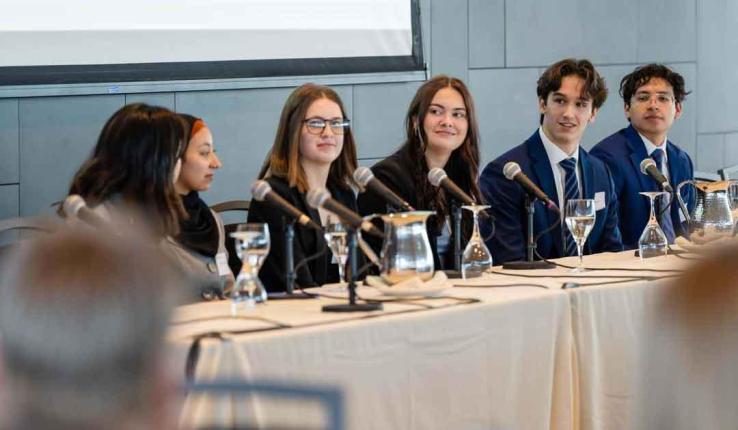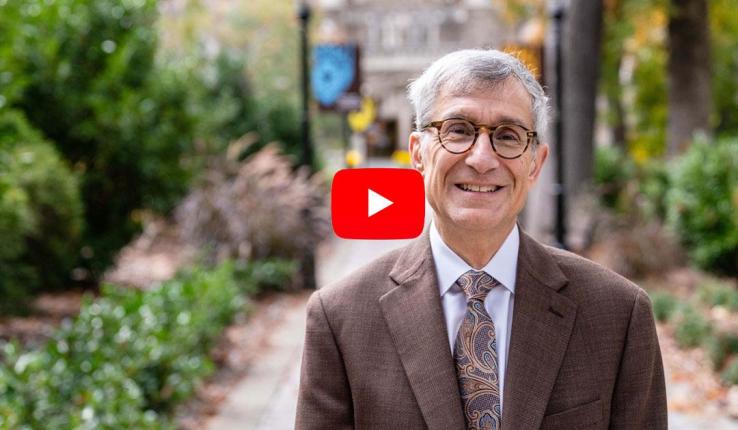“We’re proud to say that Lehigh produces leaders who are focused, pragmatic and equipped to take on the world’s most challenging problems, and Lee Iacocca was a wonderful example of all of that,” Helble said.
Helble went on to detail how Iacocca used his success to help others, first by forming the Iacocca Family Foundation in 1983 to fund research into a cure for diabetes, and then by giving back to Lehigh over the decades to help the university expand its physical campus and its global reach. In 1988, Iacocca led the fundraising campaign to acquire the Mountaintop Campus from Bethlehem Steel while simultaneously starting the Iacocca Institute. And then in 2011, he returned to Lehigh at the age of 86 to deliver a challenge to alumni, parents and friends. He would match, up to $5 million, any gifts in support of international internships – real-world global work-abroad opportunities to enrich the student experience. The match was funded in just three years, endowing the Iacocca International Internship Program.
“Think for a moment about how many lives have been impacted by Lee Iacocca, the Iacocca family and their generosity,” Helble told the audience. “The speaker series we’re launching tonight is another extension of his legacy. It’s about growing the next generation of global leaders.”
Finally, Iman Braich ’21 spoke about his experience in Iacocca Institute programs – learning the “entrepreneurial mindset” as a high school student – and then attending Lehigh.
“Laying bricks” to create a pathway of opportunity
Acevedo began the “fireside chat” portion of the evening by talking about her early years, growing up speaking Spanish in a multigenerational household in Las Cruces, New Mexico, where her family lived paycheck to paycheck. She shared some pivotal moments – being part of the pilot class of Head Start, where a teacher helped spark her love of reading, and a few years later, joining the Girl Scouts as a grade schooler. There Acevedo discovered a passion for science and engineering. And through the annual cookie sale, her troop leader helped her learn to set goals and how to get to a “yes.”
“A lot of times in my career, I would be told no, because I didn’t look like what they expected,” Acevedo said. “So it was always, how do I get to a yes?”
She mentioned that at her first job as an engineer, there was no bathroom for women. While she may not have felt welcome, she persisted on the job, and a few months later, a portable bathroom marked “Hers” was delivered.
After working in engineering for several years, Acevedo decided to become a business executive, and she set her mind to acquiring the skills she needed to advance in a new field. She said that ambitious people need to be learning at all times so that when new opportunities emerge, they have the necessary skills and are ready.
When asked what advice she would give young women or young minorities entering the business world, Acevedo said, “I believe I belong. I don’t think of myself as an ‘other.’ I think of myself as a leader or whatever other position I’m going for.”
She said that early in her business career, she was told that she needed to share her credentials as a former NASA engineer and Stanford graduate to prove herself to new clients. She did not like this advice, but she learned that in doing so, she gained control of the relationship.
Acevedo also said that leaders need to know how to bring people with different perspectives together and build consensus. For example, she described how she brought several federal agencies together to improve early childhood education when she served as White House Education Commissioner during the Obama Administration.
Acevedo shared how, under her leadership, the Girls Scouts introduced more than 146 new badges and programs in STEM, civics, entrepreneurship and outdoors. To make the initiative a success, they designed a curriculum to get girls interested, help them become confident, and then build competence.
During the audience Q+A, one of the visiting Girl Scouts asked Acevedo about her favorite badge.
Acevedo said that while she particularly likes the design of a badge for Brownies (Girl Scouts in the second and third grades) that features the image of a girl looking up at the stars, “The civics badges are really near and dear to my heart, because American democracy depends on us participating and understanding the rules of engagement.”
Throughout her career, and in her volunteer efforts, Acevedo has championed early childhood education and STEM education for girls, issues that helped her get where she is today. She recently authored a memoir, “Path to the Stars: My Journey from Girl Scout to Rocket Scientist,” using her own story to inspire ambitious girls in middle school.
“I consider what I’m doing now to be as like laying bricks behind me, because I don’t want to be just a trailblazer. I really want to create a pathway or a highway of opportunity behind me.”
Story by Emily Groff






